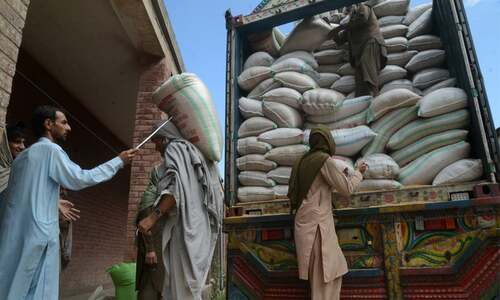ISLAMABAD: Pakistan’s Special Envoy for Afghanistan Ambassador Asif Durrani has said that not arms, but critical thinking, unity and passion for change can drive the youth of this region forward, stressing that they need to have an inquisitive mind to question socio-economic injustices.
He said this while addressing a gathering of Afghan and Pakistani youth leaders, hosted by the Centre for Research and Security Studies (CRSS) as part of Pak-Afghan Youth Peace Initiative – Building Bridges, Improving Perceptions.
According to a statement, the envoy urged the youth from both sides to take an active role in regional development by focusing on their education, skills and personal growth as they were the future leaders of the countries.
Regarding the socio-political situation in Afghanistan, he said the pursuit of common interests in a fair socio-political environment was intrinsically linked to unity.
“By fostering solidarity, empathy, and collaboration, Afghans, especially the youth, can create a more just, developed, and equitable nation where everyone has the opportunity to thrive and contribute to the greater good. The youth of Afghanistan has the opportunity to change Afghanistan’s decades-long label of ‘conflict zone’ and take an active part in nation-building,” he said.
The participating Afghan youth voiced their concerns on the issues facing the education landscape in Afghanistan, particularly for women, such as delays in visa issuance for Afghan students studying in Pakistan, as well as challenges faced by those who have to return to Afghanistan due to their illegal status or expiration of the visa.
Former MNA Mehnaz Akbar Aziz also joined the discussion where she underscored the significant role youth dialogues played in fostering unity between Pakistan and Afghanistan. She said engaging the youth from both nations was crucial for bridging diplomatic gaps and building mutual understanding.
She highlighted opportunities for youth engagement, such as academic exchanges and collaborative projects.
A vital point of her address was the importance of supporting women’s education and their involvement in politics and law in both countries. She drew attention to the economic and psychosocial challenges faced by Afghan women as education remained banned for them in the country.
Ms Aziz lauded Pakistan’s efforts in educating Afghan refugees and shared statistics, noting that currently 1.4 million Afghan refugees resided in Pakistan, with 50,000 enrolled in primary education.
She stressed the importance of continued support for Afghan refugee youth’s education in Pakistan and urged the international community to help Islamabad create a more enabling academic environment for them.
CRSS Executive Director Imtiaz Gul said with tonnes of information available in the offline and online space, youth had a huge onus to critically evaluate every bit of information they come across for its authenticity before disseminating it.
CRSS research fellow Elsa Imdad concluded that Track III engagements and youth participation were only effective if the Track I stakeholders took ownership of such efforts and gave agency to youth in policymaking.
The forum concluded with policy recommendations aimed at fostering better relations, such as establishing educational corridors to empower women and ensuring their involvement in decision-making. They also suggested forming youth committees to address common challenges and prioritised collaboration over discord in diplomatic efforts. Additionally, there was a call for increased youth engagement for peace and unity and for promoting political maturity among young leaders.
The Pak-Afghan Youth Peace Initiative is a Track III diplomacy effort supported by the US State Department. This initiative aims to foster goodwill and improve public perceptions between Pakistani and Afghan youth through dialogue, interactive workshops, community engagement, meetings with key stakeholders to discuss practical aspects of enhancing youth diplomacy and media interactions.
Published in Dawn, May 20th, 2024















































Dear visitor, the comments section is undergoing an overhaul and will return soon.